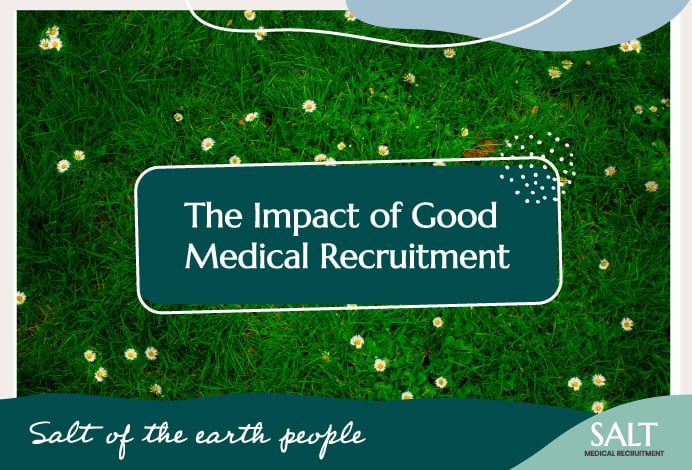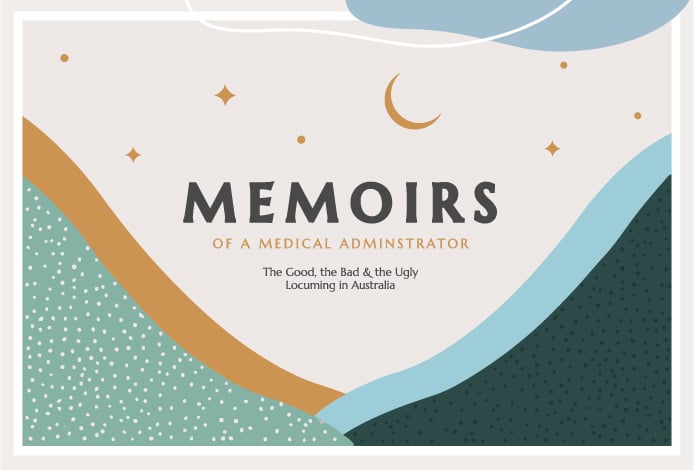Introduction
Australia’s healthcare system stands at the precipice of a significant workforce shortage, with a staggering projection of a 10,600 GPs shortfall by 2031, as outlined in a recent report from the Australian Medical Association (AMA). This sobering revelation comes at a time when almost a third of GPs signal their intention to retire within the next five years. At Salt Medical Recruitment, we share deep concerns about the implications of this impending shortage and recognize the urgent need for commitment and comprehensive change to address it as the number one nationwide priority.
In this blog, we take a closer look at the challenges GPs are currently facing, delve into the reasons behind their decisions, and put forward innovative solutions aimed at attracting and retaining this vital healthcare workforce.
The Current Landscape
The Royal Australian College of General Practitioners (RACGP) recently released a report, “The General Practice Workforce: Why the Neglect Must End,” highlighting key factors driving GPs towards retirement, including intense workloads, burnout, and the increasing complexity of patient cases. This alarming trend calls for urgent action to bolster Australia’s essential GP workforce.
Barriers to GP Attraction
Dr. Nicole Higgins, RACGP President, identifies significant barriers deterring medical students from choosing general practice. Discrepancies in conditions and pay between hospitals and private practice hinder GPs from the outset. The AMA report emphasizes that Australia is facing a shortage of more than 10,600 GPs by 2031–32, with the supply of GPs not keeping pace with growing community demand. Additionally, the report reveals that in the decade leading up to 2019, demand for doctors’ services increased by 58%, equivalent to the workload of 10,200 full-time GPs.
Innovative Solutions to assist Recruitment and Retention
To revolutionize recruitment and retention strategies, we propose a multifaceted approach:
Financial Incentives
- Support the AMA’s recommendation to raise fees for standard GP consultations to $102 to address increasing practice costs.
- Introduce incentive payments for the first 6 months of community general practice training to attract new GPs.
Work-Life Balance
- Advocate for study leave and paid parental leave for training GPs to enhance work-life balance and make the profession more appealing.
Practice Ownership Incentives
- Encourage more GPs to become practice owners by addressing high payroll tax bills threatening business viability across all Australian states and territories.
- Call for a consistent approach to payroll tax across Australia to foster a thriving general practice sector in every community.
Investment in General Practice
- Call for sustained investment in general practice care, emphasizing that this is crucial for attracting and retaining a robust GP workforce.
- Support innovation and fund more multidisciplinary primary care models designed to reduce chronic workforce shortages and improve patient access in a greater in rural and remote communities.
Conclusion
The looming GP shortage demands immediate attention and innovative solutions. As a medical recruitment agency, we are eager to witness swifter advancements in facilitating change and fostering a healthcare environment where GPs feel supported, valued, and encouraged to contribute to the health and well-being of Australians. While the pace of change may not be entirely within our control, our commitment to advocating for a healthier nation remains steadfast. It’s time for a collaborative effort to reshape the future of primary care and ensure a healthier nation for years to come.
References and Resources
- The general practitioner workforce: why the neglect must end | Australian Medical Association (ama.com.au)
- Innovative Models of Care (IMOC) Program | Australian Government Department of Health and Aged Care
- https://www.ama.com.au/ama-rounds/25-november-2022/articles/ama-report-projects-staggering-gp-shortage
- https://www.racgp.org.au/gp-news/media-releases/2023-media-releases/december-2023/health-reform-report-welcome-but-primary-care-must
- Royal Australian College of General Practitioners report: Almost a third of all GPs to retire in the next five years (9news.com.au)











